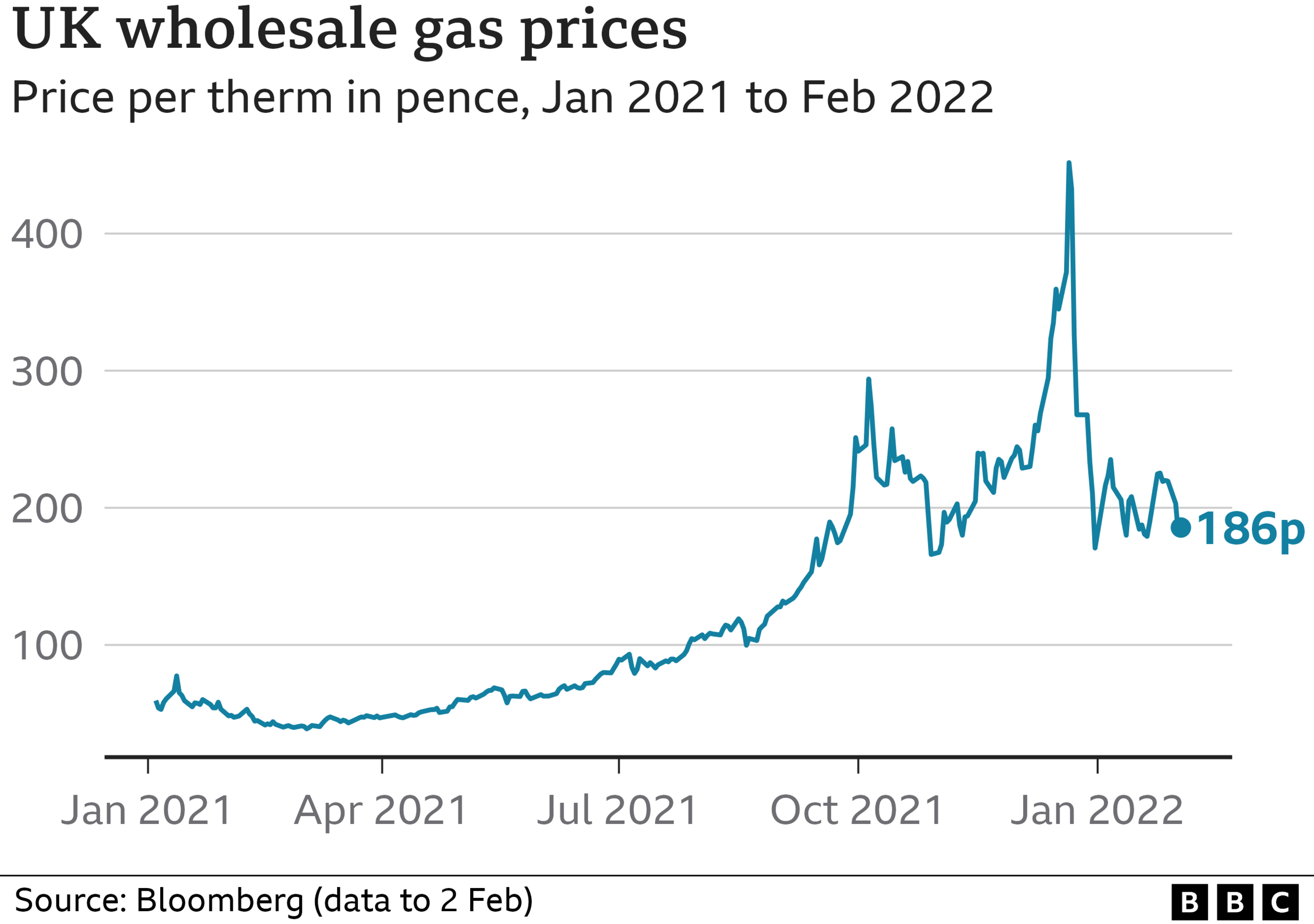Energy bills set to soar but millions may get £200 help
- Published
- comments

A record rise in energy bills is set to be announced on Thursday, but the government may step in to reduce bills by £200 for many households.
The energy regulator will detail how much bills can rise from the beginning of April, with forecasts they could reach £2,000 for many homes.
Energy firms are likely to be given loans to help them cut customers' bills, the BBC has been told.
Ministers may also extend targeted help for those in need.
But there are doubts over whether the measures will be ready by the time higher prices start on 1 April.
Energy bosses have told the BBC that they have been kept largely in the dark about the government's plans.
While some have described the plan to lend money to energy companies, to allow them to reduce bills as credible, they say they are worried that the details of the plan have not been thought through.
Energy firms are struggling under the weight of surging wholesale gas prices, and passing on some of that rise to consumers, driving up the cost of living.
Rising energy bills have helped push inflation up to a 30-year high, leaving the government under pressure to intervene.
The Treasury's "rebate and clawback" scheme, first revealed in The Times, external, would involve providing around £5-6bn in loans to energy firms to enable them to lower bills.
How are rising energy bills affecting you? Email haveyoursay@bbc.co.uk, external.
But the scheme has raised concerns among providers because the money would still have to be paid back eventually.
Energy bosses told the BBC they expect the plan would include recouping the money from households over three to five years as wholesale costs fall.
However, the bosses said wholesale prices are not expected to fall significantly any time soon.
Ofgem was meant to reveal April's price cap - which sets how much providers can charge for gas and electricity - next Monday, but it has brought the announcement forward.
The government's announcement, which could come as early as Thursday, may also include an extension of the warm homes discount and changes in other benefits.

One of the UK's biggest providers, EDF, said in a statement it would welcome government action, but gave no details of any plan nor the timing.
Philippe Commaret, the firm's managing director for customers, said: "Ballooning wholesale gas prices are driving energy bills up and customers need government to act now, especially to support those most in need.
"We look forward to hearing from government urgently on how it will help struggling households beyond the support energy companies already provide. Delaying action adds to the stress and anxiety households face."
It is feared Ofgem's announcement will take the average annual domestic energy bill from 1 April to about £2,000 for 22 million households, up from about £1,300.
That has intensified calls in recent weeks for the government to step in to help struggling households.
Citizens Advice revealed they have already seen a record number of people turning to them for advice on energy debts.
The cost of living is forecast to rise further this year, along with interest rates.
Across the economy individuals and companies are reporting price pressures. On Wednesday, a survey found that shoppers are seeing the sharpest rise in prices for a decade.
The cost of broadband and mobile phones, raw materials, transport and fuel, and food and drink are among a wide range of products and services now on the rise.
There are also planned tax rises in April, with Prime Minister Boris Johnson under intense pressure to scrap an increase in National Insurance. But he, and Chancellor Rishi Sunak, said at the weekend the NI rise would go ahead.
- Published2 February 2022


